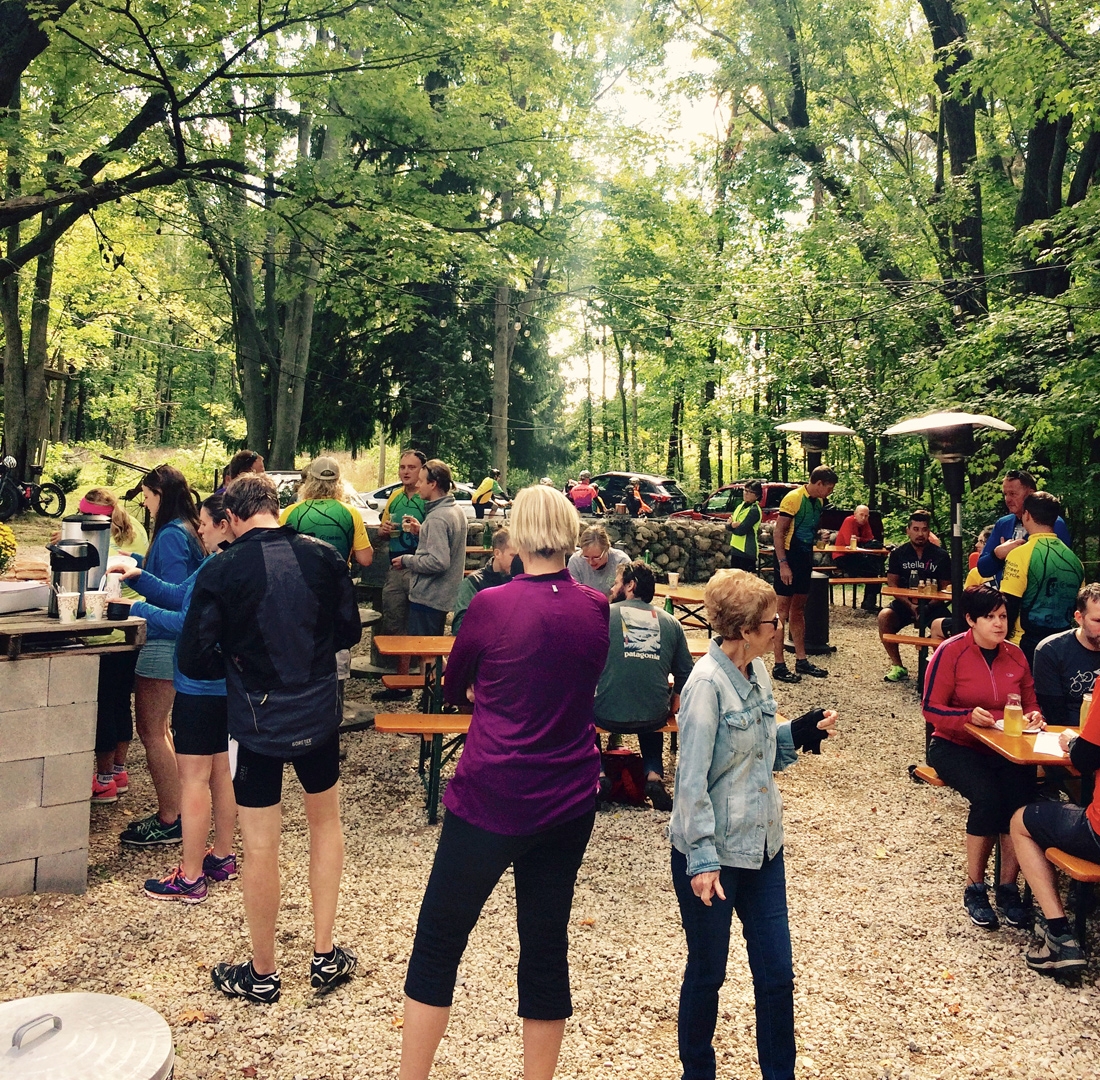To find the heart of West Michigan’s cider boom, one may need to look beyond the “burgeoning” city neighborhoods. Farmhouse Cider Co. is quietly helping a craft beverage revolution from the least assuming location imaginable — a generations-old family farm on a dirt road outside Hudsonville, in the hinterlands west of Grand Rapids and south of Grand Valley State University’s Allendale campus.
“It’s a place unlike anywhere else,” said John Behrens, who operates the two-year-old business with his girlfriend, Megan Odegaard. “It feels like you’re a million miles from anywhere, but you’re like 15 miles from downtown.”
The location is a parcel of a few hundred acres where Behrens’ great-grandparents built a farmhouse when they arrived in West Michigan as German immigrants after the Civil War. Behrens, a long-time brewing enthusiast, bought the property from his grandmother a few years ago and began experimenting with cider recipes, which he’d make with family and friends and distribute on a word-of-mouth basis.
But Farmhaus Cider Co. quickly outgrew his ambitions. Not long after going into business, Behrens’ ciders won some prominent awards and developed a following. When Farmhaus partnered with some neighboring farmers last fall to host a small harvest festival event, cars were parked for a mile along his road.
Today, Farmhaus distributes a handful of canned ciders to about 250 stores in Michigan and Illinois. It operates a locally popular outdoor cider garden, open seasonally, where visitors can fill growlers with more experimental recipes or sip the week’s offerings at picnic tables scattered throughout the trees around the farmhouse.
The cidery’s production capacity is now incapable of meeting demand, and Farmhaus is in the process of securing permission for an expansion that will allow it to use larger tanks, operate a small indoor tasting area and extend its hours. A final plan will go before the township for approval May 9, Behrens said.
Farmhaus has put out multiple pleas on social media asking its fans to come out to local township meetings and send emails to the zoning board, showing support for the expansion. If the plans aren’t approved, the cidery fears it will have to leave behind a farm that’s been in the family for 150 years just to continue to provide its product to an ever-growing audience.
Farmhaus owes its quick and bigger-than-expected success to a variety of factors, Behrens said. Now that heavier craft beers like IPAs and porters are commonplace even in small towns, tastes are expanding in more obscure directions.
“People are continuously looking for something new, and the direction they’re going towards is sours and some of the wild ferments,” he said. “Cider is a natural next step for that.”
Cider-making also aligns with other trends in craft brewing. Since ciders are naturally gluten-free, there’s a built-in audience. Farmhaus also is hyperlocal, producing many of its ingredients on-site. All of the fruit for the ciders comes from orchards within a 15-mile radius of the farm. The maple for its Brunch cider comes from a place around the corner. The raspberries for the Raspotle (as in raspberry-chipotle) come from a nearby farm.
And finally, Behrens credits Farmhaus’ success to a changing community.
“I think there’s a transformation happening in the greater Hudsonville area,” he said. “People that have lived elsewhere and have returned to West Michigan, or people who have lived in Grand Rapids for a while and are moving to start families because they’ve heard about the school districts and maybe don’t have the same preconceived notions that everyone’s grandparents did — they want local things to do, places they can go and grab a drink and hang out with their friends.”
Farmhaus Cider Co. is located at 5025 Stanton St. in Hudsonville. Its tasting area will be open Wednesday-Saturday into the fall. Find more info at farmhauscider.com.





